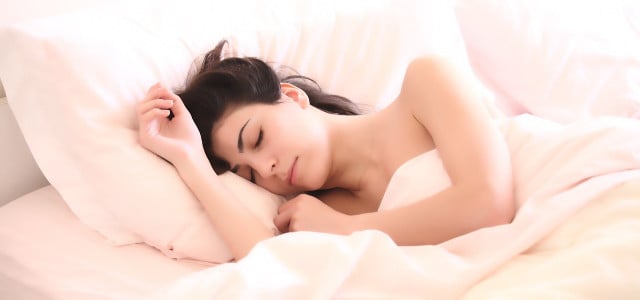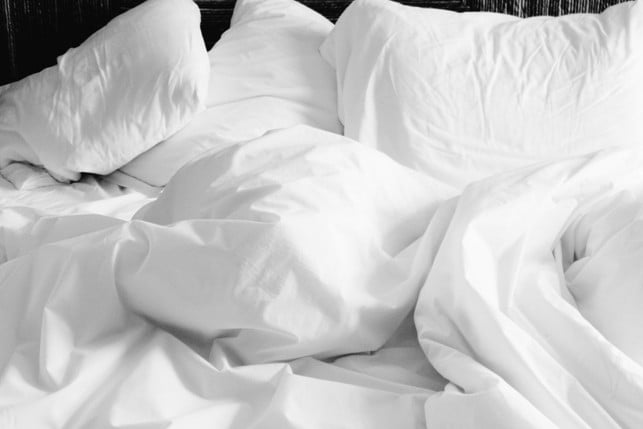
Night sweat can be uncomfortable, but it usually has harmless causes. Only in rare cases are serious illnesses behind the nightly sweating.
To a certain extent, night sweating is quite normal: the human body simply regulates its temperature by separating sweat and thus cooling its skin surface. Only when you often wake up sweaty at night, sometimes even have to change clothes and bed linen, do you suffer from the so -called night sweat.
Often there are harmless causes behind it: night sweats can go hand in hand with colds and flu, but then disappears again. Only when you are affected by a long night sweating over a longer period of time, should you have the reason medically clarified.
Possible causes of night sweat

Night sweat can have many different causes. Note: If you rarely wake up sweaty, you shouldn’t worry. However, if this occurs more often and does not get better, you should obtain medical advice.
The following reasons can be given for frequent night sweat:
-
Too warm in the bedroom: If there is too high temperature in your bedroom, you use too thick bed linen or pack yourself too thick at night, your body sometimes reacts with strong sweating.
-
Nutrition: If you have eaten heavily and drunk or drunk a lot of alcohol during the day, your organism produces more sweat at night.
-
Medicines: Different medications can go hand in hand with sweating at night as a side effect. These include, for example, fever -lowering means, hormone preparations, antidepressants and beta blockers.
-
Infectious diseases: If you are cold or have flu, your body has to fight with an elevated temperature. By sweating increased, the organism then tries to regulate the temperature. Chronic infections such as HIV, hepatitis C and tuberculosis can also trigger night sweats.
-
Hormonal changes: If your body does a hormonal changeover, night sweat can be a result. These changes include, for example, menopause, puberty, pregnancy or thyroid diseases or pollution such as iodine deficiency.
-
Stress and mental illnesses: your psyche can also provide night sweats. If your mind does not come to rest at night because you are struggling with strong stress, anxiety disorders or inner unrest, extreme sweating can be a side effect.
-
Hyperhidrosis: If you have the feeling of sweating excessively all day, the cause could be a so -called hyperhidrosis, which leads to a proportionate overproduction of sweat. Hyperhidrosis can have different triggers. Your: e doctor: In but can help you relieve sweating.
-
Cancer: Sometimes leukemia and tumors of the lymphatic system (for example Hodgkin’s disease and non-Hodgkin lymphomas) bring night sweat.
Nocturnal sweating: treatment

There is no general recipe for treating night sweat. First of all, the cause of the increased sweating must be identified – the therapy then depends on it.
For example, if the trigger is a flu, the night sweat with the infection disappears all by itself. If strong stress is responsible, you should consider psychotherapeutic treatment. If medication is to blame for the night sweat, switching to another drug can help.
If you are rarely affected by night sweats and no physical illnesses are based, simple steps can help:
- Avoid sharp or too big meals shortly before going to bed.
- Drink less alcohol.
- Select the temperature in your bedroom or use a thinner duvet, for example, in summer.
It can also help to keep in mind that sweating is important and in most cases simply means that your body can regulate its temperature itself.
Revised by Freya Petersen
Read more on utopia.de:
- Strong sweating: The best home remedies for sweat
- Remove welding stains: It works with these home remedies
- Heat flashes in menopause: help these home remedies
** marked with ** or orange underlined Links to sources of supply are partially partner links: If you buy here, you will actively support Techzle\.com, because we will then receive a small part of the sales proceeds. More information.